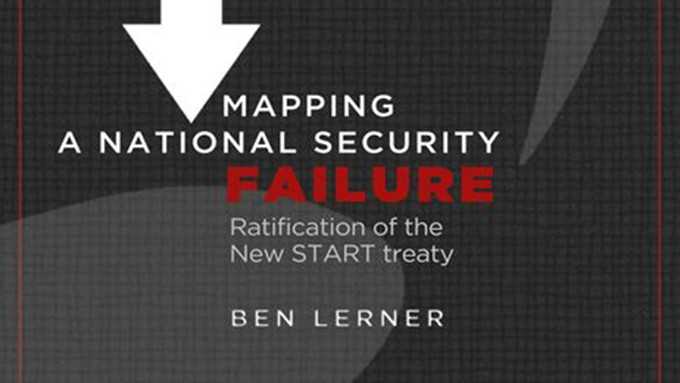Mapping a National Security Failure: Ratification of the New START Treaty

Chairman of the Joint Chiefs of Staff Adm. Michael Mullen would soon follow, stating before the Senate Armed Services Committee in June, 2010: “In my view, a key contribution of this treaty is its provision for a strong verification regime. I would like to emphasize some of the key elements of this regime, which will monitor Russia’s compliance with the treaty, while also providing important insights into the size and composition of Russian strategic forces.”[68] This testimony would be followed shortly by a joint letter to senior Senators, signed by several former commanders of Strategic Air Command and U.S. Strategic Command:
…the New START Treaty contains verification and transparency measures—such as data exchanges, periodic data updates, notifications, unique identifiers on strategic systems, some access to telemetry and on-site inspections—that will give us important insights into Russian strategic nuclear forces and how they operate those forces. We will understand Russian strategic forces much better with the treaty than would be the case without it.[69]
President Obama, Vice President Biden, and Chairman Kerry began pushing in earnest in the late fall of 2010 for a lame-duck vote on ratification, using the need to close the “verification gap” as a key argument for asserting not only that New START should be ratified, but ratified in a lame-duck session.
Vice President Biden, in commenting on the need to ratify New START before the end of 2010, led his 16 November 2010 statement with the following:
Failure to pass the New START Treaty this year would endanger our national security. Without ratification of this Treaty, we will have no Americans on the ground to inspect Russia’s nuclear activities, no verification regime to track Russia’s strategic nuclear arsenal, less cooperation between the two nations that account for 90 percent of the world’s nuclear weapons, and no verified nuclear reductions.[70]
On 18 November, 2010, President Obama convened a meeting on the New START treaty—flanked by Secretary of State Clinton, Chairman Kerry, Senate Foreign Relations Committee Ranking Member Richard Lugar, former Secretaries of State Madeline Albright, James Baker, and Henry Kissinger; former Secretaries of Defense William Cohen and William Perry; former National Security Advisor Gen. Brent Scowcroft; then-Vice Chairman of the Joint Chiefs of Staff Gen. James Cartwright; and former Senator Sam Nunn—turning quickly to the verification gap:
If we ratify this treaty, we’re going to have a verification regime in place to track Russia’s strategic nuclear weapons, including U.S. inspectors on the ground. If we don’t then we don’t have a verification regime—no inspectors, no insights into Russia’s strategic arsenal, no framework for cooperation between the world’s two nuclear superpowers. As Ronald Reagan said, we have to trust, but we also have to verify. In order for us to verify, we’ve got to have a treaty.[71]
Notably, the next day, The Washington Post—the editorial board of which was otherwise supportive of New START—ran an editorial commenting on the administration’s push to ratify the treaty:
President Obama’s claim that it is ‘a national security imperative’ that the U.S. Senate ratify a nuclear arms treaty with Russia before the end of the year seems more than a little overstated…
…the treaty ought to be approved. But no calamity will befall the United States if the Senate does not act this year…
…In reality, Mr. Obama’s urgency probably has less to do with national security than with the upcoming shift of Senate seats, which will increase the number of Republican votes needed for ratification…[72]
Nonetheless, in subsequent remarks on the Senate floor, Chairman Kerry—after arguing that the 2009-2010 Senate was better-positioned than the next Senate to cast an informed ratification vote because of the extensive amount of hearings, briefings, and document reviews supposedly undergone by the former—cited the verification issue as his first treaty-substance-related justification for seeking a vote in the lame-duck session:
Besides, there are important national security reasons not to wait. Next Sunday—December 5—it will have been one year since the original START Treaty expired. A full year without on-the-ground inspections. Some say it doesn’t make a difference whether we wait a few more months. Well, when it comes to uncertainty about nuclear arsenals, I think a few months does matter. Without this treaty, we know too little about the only arsenal in the world with the potential to destroy the United States. As James Clapper, the director of national intelligence, said of ratifying New START, ‘I think the earlier, the sooner, the better.’[73]
- Trump’s Election Was a Win in the Fight to Keep Gitmo Open - January 4, 2017
- NDAA and the Counter-Drone Challenge - December 23, 2016
- NDAA Takes On Counter-Drone Challenge - December 8, 2016
